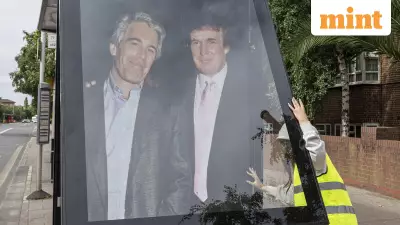
COP30 Climate Summit Reaches Critical Juncture as Ministers Take Over
Thousands of climate activists brought traffic to a standstill in the Brazilian city of Belém on Saturday, demanding faster action against global warming as the United Nations COP30 summit enters its decisive second week. The massive protest highlighted growing public impatience with the pace of climate negotiations, setting the stage for what promises to be a challenging week of diplomatic discussions.
Climate ministers from participating countries have now arrived at the summit, facing the critical task of bridging significant differences on key issues. The negotiations will focus on accelerating emissions reductions, providing climate finance to developing nations, and facilitating fair trade practices. All parties aim to reach a comprehensive agreement by Friday when the conference is scheduled to conclude.
Fossil Fuel Transition Roadmap Faces Significant Resistance
The central demand from Brazilian President Luiz Inácio Lula da Silva for a concrete roadmap to transition away from fossil fuels faces uncertain prospects. According to COP30 President André Corrêa do Lago, there is "significant resistance" to the fossil fuel roadmap proposal from several quarters.
Jennifer Morgan, Germany's former special envoy for climate, noted in an interview: "I've had more conversations about fossil fuel transitioning away at this COP than any other, and now it's time for ministers to deliver on President Lula's call. If there's enough political momentum behind it, with enough countries, they'll find a place to put it."
Anonymous negotiators from developed countries revealed that opposition to the fossil fuel roadmap might be too strong for inclusion in the final outcome. Instead, work would focus on building a coalition of willing nations to push ahead with voluntary transition processes.
Developing Nations Push for Climate Finance Commitments
The Like Minded Developing Countries group, which includes major economies like Saudi Arabia and India, is intensifying pressure on developed nations to make more concrete promises on climate finance. Simultaneously, China is pushing for discussions about unfair trade practices that could impact global climate efforts.
Brazil, as the host country, faces the delicate task of balancing the fossil fuel transition plan with other core demands. The Brazilian negotiating team had adopted unconventional approaches during the first week, including requesting "love letters" from countries outlining their COP30 expectations and branding meetings as "therapy sessions."
Liliam Chagas, Brazil's lead negotiator, acknowledged the complexity of the task ahead: "We are entering the political phase. There are many views about the issues at stake."
Potential Solutions and Breaking Deadlocks
With expectations low for a fully realized fossil fuel plan by Friday, negotiators are exploring alternative solutions. One potential compromise involves committing to continued discussions over the next year or longer, with the next major stock-taking scheduled for 2028. This assessment will reveal how far off course countries are from the Paris Agreement goal of limiting warming to 1.5°C.
Hope persists in some negotiation circles that a deal on adaptation finance could be achieved. The 2021 agreement to double adaptation finance to approximately $40 billion expires at year's end, and there's strong momentum to establish a new, more ambitious goal for the coming decade. Such an agreement could potentially unlock greater support for fossil fuel reduction measures.
President Lula is expected to join the summit in its final days to help break any deadlocks, according to sources familiar with the matter. The Brazilian presidency has been considering a "mutirão decision" – named for the Brazilian Portuguese term meaning collective effort – to weave together the various negotiation threads.
As the clock ticks down toward Friday's 6 p.m. deadline, the conciliatory mood that characterized the first week faces severe tests. David Waskow, director of the World Resources Institute's International Climate Initiative, cautioned: "It's been helpful to give parties that room in a lot of ways. But continuing in that vein — sort of floating in space for too long — would not, in my view, be helpful to landing an agreement at the end."
The summary of negotiations published late Sunday indicates that any final outcome will acknowledge progress since the Paris Agreement, emphasize moving from negotiation to implementation, and address the urgency of the climate crisis. While the text keeps open the possibility of a roadmap, it doesn't explicitly tie it to fossil fuel phase-out.





